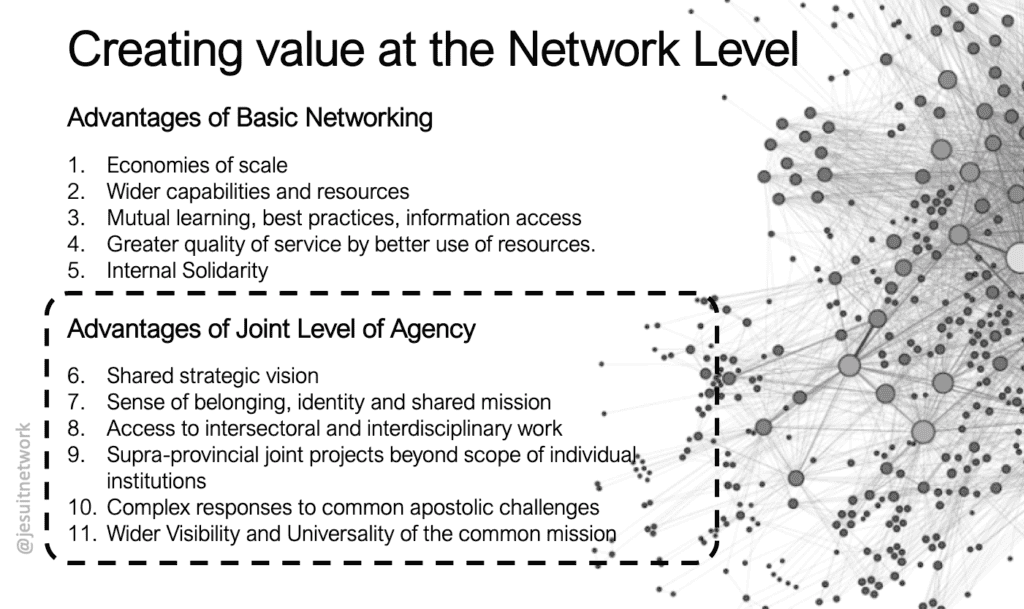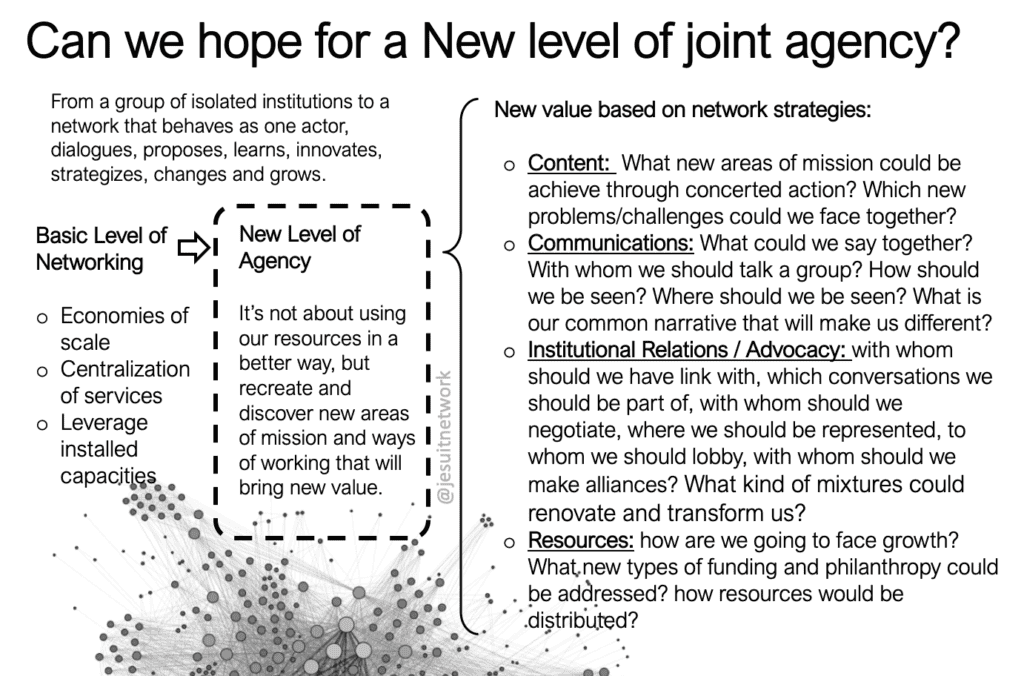This website uses cookies so that we can provide you with the best user experience possible. Cookie information is stored in your browser and performs functions such as recognising you when you return to our website and helping our team to understand which sections of the website you find most interesting and useful.
Creating Value through Network Strategies
“But… why do we need networks? What do they offer to us?” These are the questions that everybody posses when we start a workshop. My answer is always that we, jesuits, do build networks not only for efficiency but specially for the good of the mission. That’s why the criteria for a jesuit network is double: (a) it adds value to our common mission, and (b) it has a formal link with the jesuit governance. The second criteria will be covered in another post. Today I would love to deepen on in which way networks add value to our mission. How do they enrich it, which ingredients do they add to our common work.
The first step is always recognize that there are many types of networks depending on what do we want to achieve. Some are just structures for improved coordination, other are looking for ways to better use the resources in common, some are trying to develop projects, and other are brave enough to try to reach some sort of collective action. So, it’s key to recognize that not all networks contribute to the mission in the same fashion, and not all institutions are ready to attempt all type of networks. Any question about efficiency, structures and strategy should recognize the many differences between one or another type of common horizon.
Usually we understand better the basic level of networking that will bring mainly efficiency due to a more accurate use of the available resources, that is, three main advantages: (1) Economies of scale, (2) Centralization of Services, (3) Leverage of installed capacities. This level brings very interesting network dynamics as mutual learning, best practices, internal solidarity, etc… Most of our jesuit networks are operating at this level, in a symbiotic relationship of what do I need and what I can offer.

As a consequence of this process we usually start work groups with actors with the same interest to start developing joint projects in order to bring value to their institutions through common work. The magic comes when institutions learn that there are objectives in my own mission that can’t be achieved without collaboration. This is when networking becomes part of the strategy of the institution, intersectorial and interdisciplinary work begins, and the network becomes an apostolic actor where the institutions find value and agency that can’t be found elsewhere.
The main advantages of this new level of agency are: (a) Sense of belonging, identity and shared vision, (b) Intersectorial and interdisciplinary work, (c) Supra-provincial joint projects beyond scope of individual institutions, (d) complex responses to common apostolic challenges, and (e) wider visibility and universality of the common mission. Here is where most of the network value is created, the main result is a stronger and shared strategic apostolic vision, specifically: (a) Communication: stronger common messages and positioning, wider universality and visibility of the proposal, (b) Content: new areas of mission due to hybridization of sectors, (c) resources: access to new funding actors due to the complexity and scale of the programs, (d) advocacy: possibility of lobby and negotiation with higher political and multilateral actors, (e) institutional relations: stronger alliances, participation on international forums and state-of-the-art ongoing conversations.

Hopefully this helps us to think together what type of objectives could be proper for a network strategy that really brings value to our common mission. We use this approach in our workshops with networks interested in sharpening their strategic vision through a renewal of their network objectives to the higher level of agency possible.
Help us to improve this approach. How do you do it? What type of question we are not covering? Where do you see difficulties? What is your experience on this challenge of adding value to our mission through network strategies?





